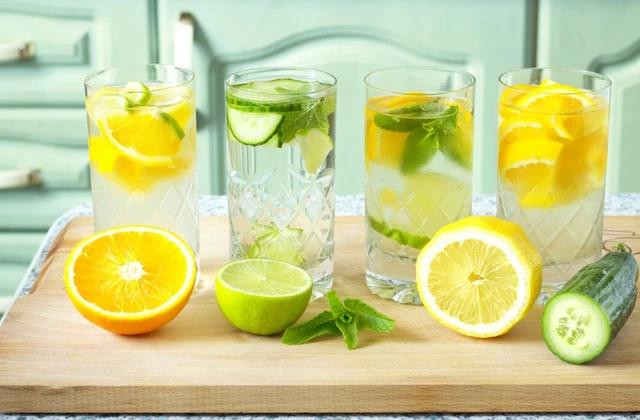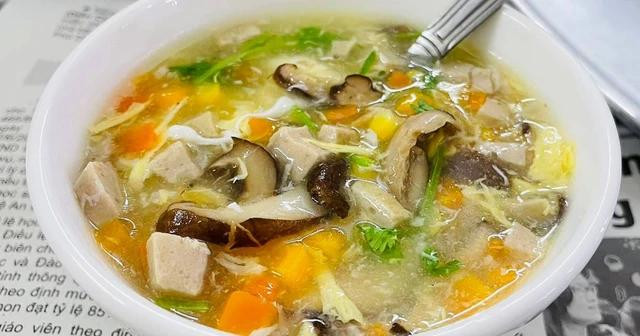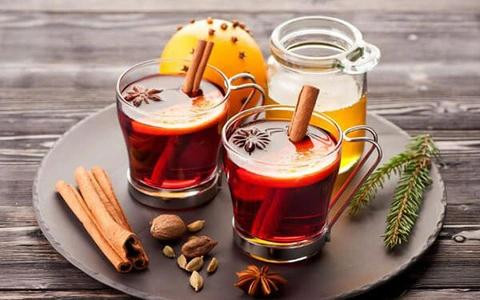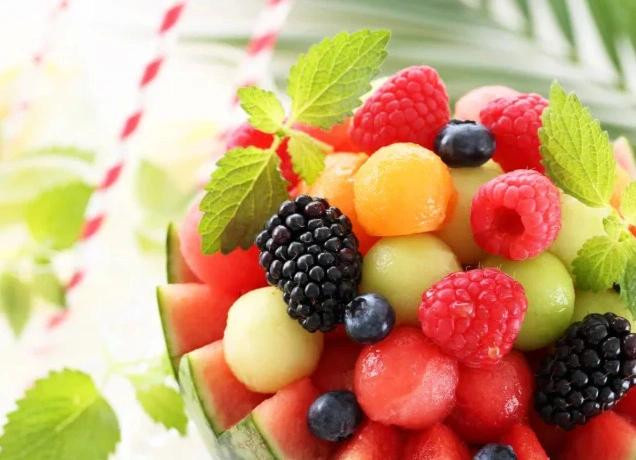What to eat and what to avoid when sick?
Cold weather and fluctuating temperatures make many people sick. Check out the foods you should eat and avoid when you are sick to help your body recover best.
When you are sick, feeling weak with chills, aches and pains or simply have a runny nose, sore throat and cold, adopting the right diet can help improve your symptoms sooner.
In addition, the wrong foods can weaken your immune system's ability to fight off viruses or bacteria. Learn what foods to eat when you or a family member is sick and what foods to avoid altogether.
1. When sick, eat foods rich in vitamin C but avoid acidic drinks.
Citrus foods like oranges, lemons, and grapefruits are rich in vitamin C, which can be a great boost to your immune system to fight off the common cold. For many people, citrus juices help reduce the severity and duration of cold symptoms.

But if you have stomach problems, the high acidity in some of these fruits and juices can make your stomach pain worse. So limit your intake of citrus juice if you have an upset stomach or if you are vomiting.
Remember, it's not just citrus fruits that contain vitamin C. Fruits like guava, black grapes, kiwi, lychee, strawberries, peppers (especially red bell peppers), potatoes, and some cruciferous vegetables like cabbage, watercress, spinach, and broccoli are also high in vitamin C.
2. Eat hot chicken soup but avoid sugar and sweets
Why is chicken soup such a staple when we’re feeling unwell? Hot chicken soup makes a great meal that provides nutrients and calories while you’re sick, while also keeping you hydrated and feeling less stuffy. It’s easy to digest and provides lean protein and essential nutrients to support your body when you’re sick.
In fact, studies show that hot liquids, especially hot chicken soup, help loosen mucus to clear nasal passages. Warm liquids can also soothe a sore throat.

On the other hand, replacing this salty food with convenient fast foods like cookies, candy or other sweets can have the opposite effect. When the body has a cold or flu, consuming too much sugar has a bad effect on the digestive system and makes your immune system work harder. As a result, you feel more tired and take longer to recover.
3. Drink hot tea but avoid caffeinated and alcoholic beverages
Specialist Doctor I. Tang Manh Hoat - Military Hospital 4 said: When experiencing cold and flu symptoms, it is important to drink enough water. A cup of hot herbal tea has a thirst-quenching effect and breathing in the steam can help clear mucus in the sinuses.
Drinking hot tea is a good choice when you have a cold or a stuffy nose. Hot ginger tea will help soothe a sore throat and clear your nasal passages as well as keep you warm. Ginger is also a great food to soothe an upset stomach. Herbal teas such as cinnamon tea, peppermint tea, chamomile tea, and jujube tea are also good choices as they contain antioxidants that help relieve some cold symptoms.

However, stick to low- or caffeine-free hot teas. According to Dr. Tang Manh Hoat, coffee can cause dehydration, which can make sinus congestion worse.
If you try to hydrate with caffeinated beverages like soda or coffee, these can have the opposite effect. The high sodium content in many of these drinks can also negatively impact your immune system's ability to fight off viruses or bacteria.
Some caffeinated beverages, such as green tea, contain immune-boosting antioxidants and are beneficial when consumed in moderation.
Even if you drink up to eight glasses of water a day, just one glass of alcohol can disrupt your hydration. Therefore, having a few drinks when you have a cold will definitely disrupt the healing process. Dr. Hoat said that drinking alcohol causes dehydration and triggers an inflammatory response, which can worsen cold and flu symptoms. Therefore, people with colds or who are sick should absolutely abstain from alcohol and alcoholic beverages.
4. Eat fresh fruits and vegetables but avoid processed foods

You may not want to go to the trouble of washing and preparing fruits and vegetables when you are unwell, but remember that these fresh foods are full of nutrients and vitamins that your body needs to recover. Choose fruits and vegetables with deep colors such as blueberries, cranberries, raspberries, black grapes, kale and spinach... which are full of antioxidants that are beneficial for your sick body.
When you are sick, avoid snacking on processed foods like chips, canned foods, and foods high in salt. These foods may not be as high in sugar as candy or sweets, but they are high in salt and sodium along with other preservatives that slow down the healing process./.








